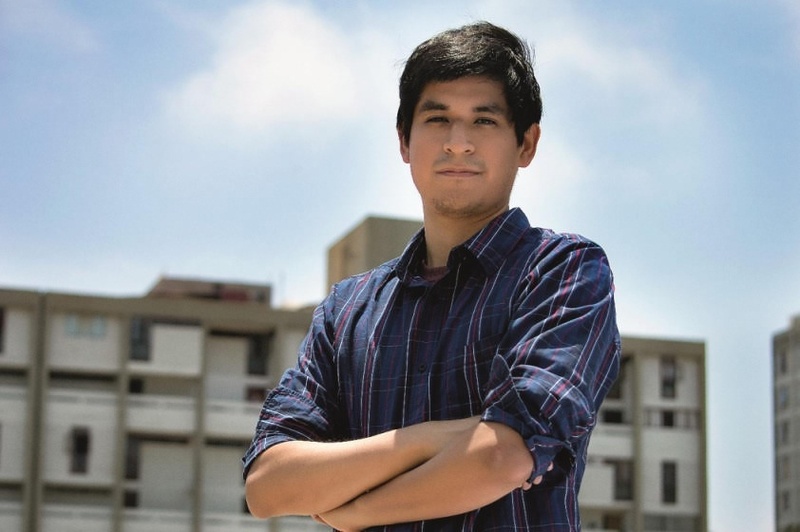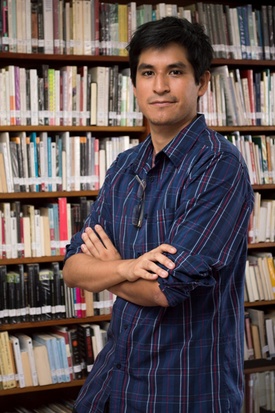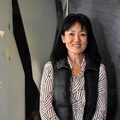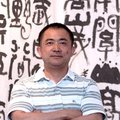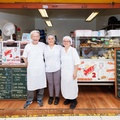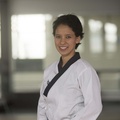Marco Carrasco Villanueva has made news in Peru. The publication on the website of his alma mater, the Universidad Nacional Mayor de San Marcos, about the first place obtained in a master's degree at the Sorbonne University in Paris, put all the spotlights on this young Peruvian student who, beyond his achievements academics and his professional work, he is also passionate about Japan and its culture.
“I have always been fascinated by Asia and especially Japanese culture, that interesting mix between the traditional and the modern,” Marco says at the outset, who reveals that his parents gave him that name because they really liked the remembered cartoon (“they didn't "They knew it was an anime," he clarifies) about that boy who goes from the Apennines to the Andes in search of his mother.
“When I look back on it, I feel very marked by Japan. I grew up watching shows like Nopo y Gonta and NHK puppet theater that I still watch on YouTube; “I really liked the stories of Urashima Taro, Kaguyahime, Momotaro, which captured me because of how different they were,” he points out.
Later, his family moved near the Peruvian Japanese Cultural Center, which he began to frequent, and he even studied Japanese there for a year. “Something that I value a lot is the cultural learning that one has through the language and that is what interests me most now about studying a language,” says Marco, who speaks English, French, Portuguese, Chinese, a little Korean, Japanese and Italian. This passion has also led him to learn sign language, Quechua, Shipibo, Awajun, among other native languages, which he considers windows to different cultures, which often remain invisible in our society.
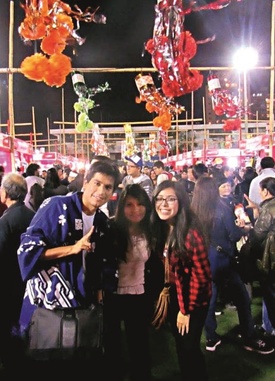
“I also had a very good Nikkei friend, who passed away a few years ago; I remember her because she greatly influenced my approach to the Peruvian-Japanese community,” says Marco, who began attending various activities such as the Matsuri, where he was captivated by the sound of the taikos, so much so that he decided to enroll in the Ryukyu Koku Matsuri group. Daiko, of which he was a part for a year and a half, before leaving for France.
A LOOK AT ASIAN COUNTRIES
In his search for what things might interest him about the economics career he was studying, Marco met Professor Carlos Aquino, one of the most recognized specialists in studies on Asian economies. He quickly connected due to his long-standing interest in countries like Japan, China and Korea, and that is how they founded an academic group, the Asia Group.
Currently, Marco is focused on understanding the Chinese economy more due to the current context and because this country has also been promoting and financing various research that allows professionals like Marco to learn more about the scope of its development.
Marco, who has already traveled to China and Korea, says he is eager to get to know Japan. “Just like France, Japan is a country that interests me culturally and in research topics,” he says.
“After the Meiji Restoration, Japan was the first Eastern country to open up to the world, they acquired Western customs, including economic and political models, but at the same time they maintained that culture that had remained isolated, to a certain extent homogeneous, and became "It achieved a very interesting mix," says Marco, for whom Japan is a culturally self-sufficient country, capable of meeting the demand of its population with its own cultural productions, such as anime, for example.
THE SOFT POWER OF JAPAN
“I faithfully follow Dragon Ball Super , I am a fan of Goku, I go to Arenales (a shopping center that concentrates the sale of Asian products), I have followed animes like Super Campeones , like Seinto Seiya ; It is a very interesting enjoyment due to the complex nature of the anime's plots, with high emotional content; They have history, mythology, they have great philosophical content,” he says to explain “that kind of magic” that he feels that Japan has and that has taken root in his generation.
Marco points out that along with Korea, and much more than China, Japan is one of the countries that has the greatest capacity for soft power , that influence that a country exerts not through political or economic power, but through a kind of cultural influence.
The strategy of including popular anime, manga and video game characters as ambassadors for the Olympics to be held in Tokyo in 2020 is part of this objective.
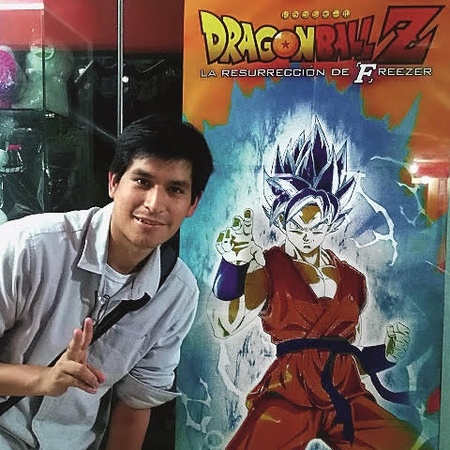
BEHAVIORAL ECONOMICS
Along with his studies on Asia, Marco has specialized in behavioral economics, an emerging approach that, he notes, suggests taking some lessons from psychology and other areas of neuroscience to better understand behavior and decisions of economic agents, both people and institutions.
“Conventional economic theory assumes that decisions are rational, measured, but we are not machines; We get carried away a lot by our passions, by our emotions, and this can explain certain anomalies in the economy. My approach is that better understanding people's biases allows us to apply certain types of modifications in the design of public policies, in the environment, education, etc.”
* * * * *
PROFILE
- Marco Carrasco Villanueva is an economist from the Universidad Nacional Mayor de San Marcos.
- He took first place in the research master's degree in economics and management, with a mention in economics and psychology, which he completed between 2013 and 2015 at the University of Paris 1 Panthéon - Sorbonne (France).
- He has been a volunteer at the UN, promoting sustainable development goals.
- His research is focused on behavioral economics and its application to public policies, and he has developed the BEST project: Behavioral Economics & Data Science Team.
- Likewise, he researches the Asian economies, mainly China and Japan, and is part of the Asia Group, an academic group at the University of San Marcos.
- In February and March he participated as a guest delegate in two conferences on development and innovation in East Asia, which will be held at Harvard University and Peking University.
* This article is published thanks to the agreement between the Peruvian Japanese Association (APJ) and the Discover Nikkei Project. Article originally published in Kaikan magazine No. 108, and adapted for Discover Nikkei.
© 2017 Texto: Asociación Peruano Japonesa



